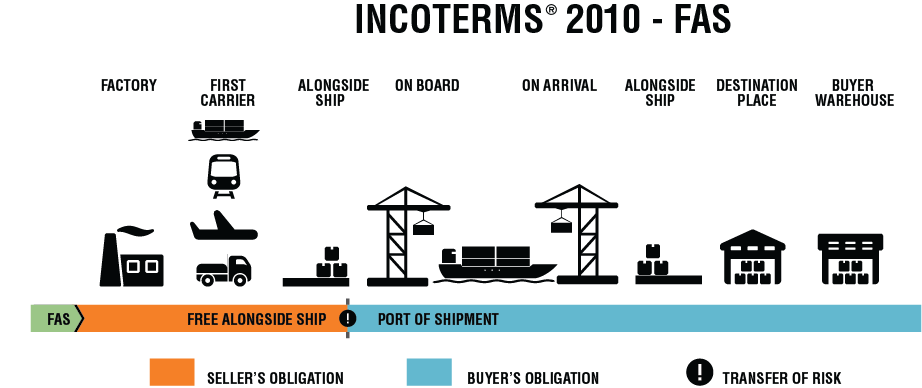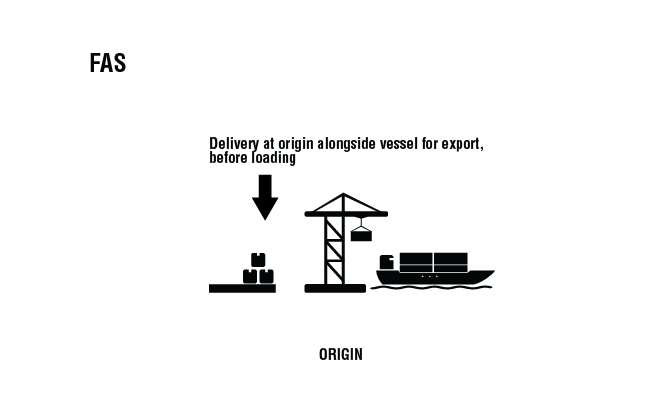| A. THE SELLER’S OBLIGATIONS |
B. THE BUYER’S OBLIGATIONS |
| 1. Provision of goods The seller must deliver the goods, provide commercial invoice or an equivalent electronic document, provide evidence of conformity or proof of delivery |
1. Payment The buyer must pay the price of goods as agreed in the contract of sale |
| 2. Licences, authorisations and formalities The seller must provide export licenses or local authorizations for exporting goods |
2. Licences, authorisations and formalities The buyer must get any export license and import permit for the export of goods |
| 3. Contracts of carriage and insurance Contract of carriage without obligation Contract of insurance without obligation |
3. Contracts of carriage and insurance Contract of carriage without obligation Contract of insurance without obligation |
| 4. Delivery The seller must place the goods alongside the ship at named port of loading by the buyer within date and time agreed. |
4. Taking delivery The buyer must take delivery of the goods when they have been delivered |
| 5. Transfer of risks The seller must has to bear all risks of loss of or damage to the goods until such time as they have been delivered alongside the ship |
5. Transfer of risks The buyer must bear all risks of loss of or damage to the goods from the time they have been delivered in accordance. If the vessel is delayed or doesn’t show up as planned, the buyer must afford extra expenses |
| 6. CostsThe seller must pay: All cost to deliver the goods alongside the ship including at origin, customs formalities, duties and taxes and other export charges |
6. Costs The buyer must pay all costs relating to the goods from the time they have been delivered which include loading and insurance, additional cost has been incurred due to vessel delay or no-show, main carriage, import customs, duties and taxes for import until final destination |
| 7. Notice to the buyer The seller must give notice that goods have been delivered alongside ship or the carrier did not took possession of goods as agreed |
7. Notice to the seller The buyer must notify the seller vessel name, loading port and delivery time |
| 8. Proof of delivery, transport document or equivalent electronic message The seller must provide assistance to the buyer on obtaining the transportation document or proof of receipt |
8. Proof of delivery, transport document or equivalent electronic message The buyer must receive proof of delivery by the seller |
| 9. Checking – packaging – marking The seller must pay cost of checking operations, quality control, weighing and counting. appropriated packaging or special packaging upon buyers request and packaging marking |
9. Inspection of goods Unless is mandatory for local authorities, pay for customs inspection at port of loading |
| 10. Other The seller must provide assistance to secure information and documentation for export |
10. Other The buyer must pay for origin documentation to the seller and provide the seller any documentation required for export |
 Source: internationalcommercialterms.guru
Source: internationalcommercialterms.guru
